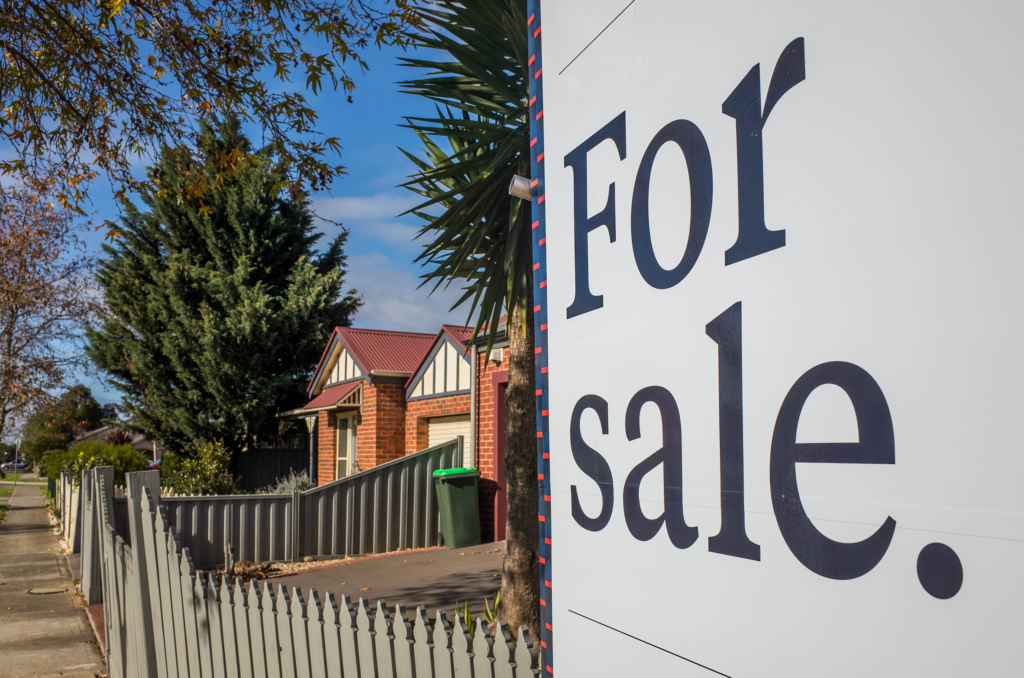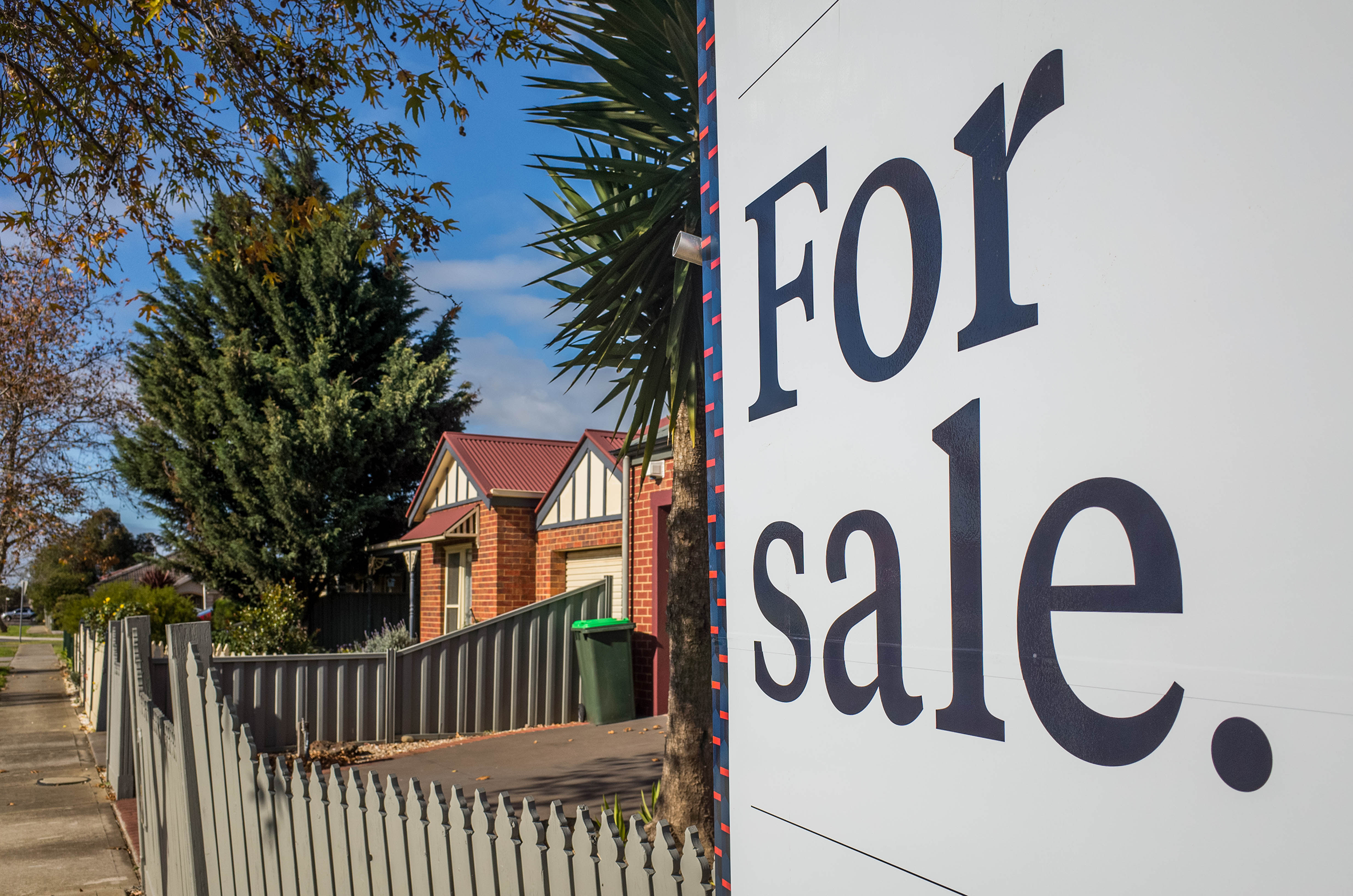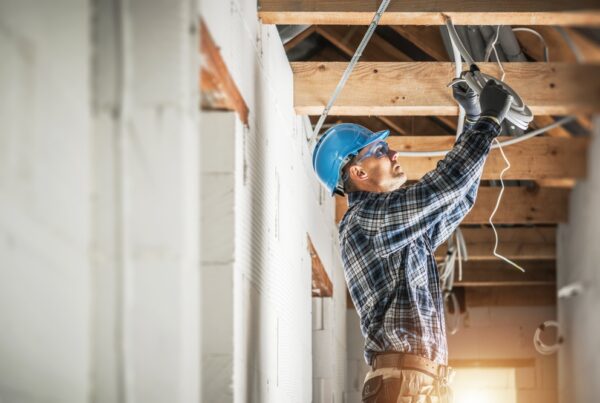Australia’s property prices fell another 1.4 per cent this last month as the cost of borrowing increased, and another interest rate rise is expected after recent Reserve Bank meeting.

The recent declines are chipping away at the huge property price increases that followed the troughs during the pandemic.
Last month’s drop in CoreLogic’s home value index was less than the 1.6 per cent fall in August but the pace of declines could quicken again if the RBA’s key interest rate keeps rising, said Tim Lawless, the data group’s research director.
“It’s possible we have seen the initial shock of a rapid rise in interest rates pass through the market, and most borrowers and prospective homebuyers have now ‘priced in’ further rate hikes,” Lawless said. “However, if interest rates continue to rise as rapidly as they have since May, we could see the rate of decline in housing values accelerate once again.”
Investors are betting the central bank board will hike the cash rate another 50 basis points on Tuesday, marking the fifth such rise in as many months. If the rate is lifted to 2.85 per cent, it would be the fastest increase since a similar 275-basis-point increase between August and December 1994.
Of the major commercial banks, all but the CBA are predicting a half percentage point increase on Tuesday. All four, though, are forecasting the RBA’s rate rises to peak much lower than the 4% currently predicted by investors by mid-2023.
Advertisement
The rate of property price falls varied across the country, with tapering of the drop in the three biggest cities. Sydney’s rate of decline eased from 2.3 per cent in August to 1.8 per cent in September, Melbourne’s moderated from 1.2 per cent to 1.1 per cent, while those in Brisbane eased from 1.8 per cent to 1.7 per cent, CoreLogic said.
Housing prices falls accelerated in Adelaide and Perth in September but the decline started later and remains more modest than in other major capitals. Adelaide’s prices were off 0.2 per cent in September and 0.4 per cent in Perth.
Darwin remained the only capital city where housing values haven’t started to trend lower, although dwelling values remain 10.1 per cent below the 2014 peak, CoreLogic said.
Renters, meanwhile, continue to face higher costs, although September’s average national increase of 0.6 per cent was the slowest since last December. The pace peaked at 1 per cent in May, CoreLogic said.
The slowdown in rental increases was more stark in regional Australia where monthly increases have reduced from a peak of 1.4 per cent in January 2021 to 0.3 per cent last month.
Availability, however, remained low in many parts of the country, with capital city rents up 16.5 per cent since the pandemic’s onset, with regional rents up about one quarter.
“A gradual slowdown in rental growth in the face of such low vacancy rates could be an early sign that renters are reaching an affordability ceiling,” Lawless said.
“It’s likely renters will be progressively seeking rental options across the medium to high density sector, where renting is cheaper, or maximising the number of people in the tenancy in an effort to spread higher rental costs across a larger household.”
But the recent declines have not yet erased the previous boom. Sydney’s home values rose 27.7 per cent from their Covid nadir, and have since retreated 9 per cent from the peak, CoreLogic said.
For Melbourne, the rise from the Covid minimum was a more moderate 17.3%, and the fall from the peak was 5.6 per cent by the end of last month.
In Brisbane, where the run-up from the trough reached 42.7 per cent, the decline since has been 4.3 per cent. In Adelaide, which had the biggest bounce – at 44.7 per cent – prices have only retreated 0.3 per cent.
The ACT, where the trough-to-peak rally was 37.7 per cent, the decline so far has been 4.4 per cent, CoreLogic said.
The RBA has said average real estate prices may drop as much as 15 per cent from their peaks while some independent economists are forecasting the falls from the peak will be 20 per cent or more.
Lawless said the projections point to falls in home values of about 18 per cent for Sydney and Melbourne, with 8 per cent for Brisbane and 4 per cent for Adelaide. He noted that some forecasters, such as Barrenjoey, have estimated the average drop may be much as 25 per cent.
The spread of forecasts “highlights just the sheer uncertainty of where housing prices may land,” he said. “[T]he housing value trajectory is very much intertwined with the cash rate trajectory.”
While the big banks are predicting the RBA’s cash rate to peak by the first quarter of 2023 in the mid-3 per cent range, investors are were hawkish, eyeing instead a rate above 4 per cent by the middle of next year, Lawless said.
This article was published courtesy of Guardian News & Media Ltd. Read original article here.









